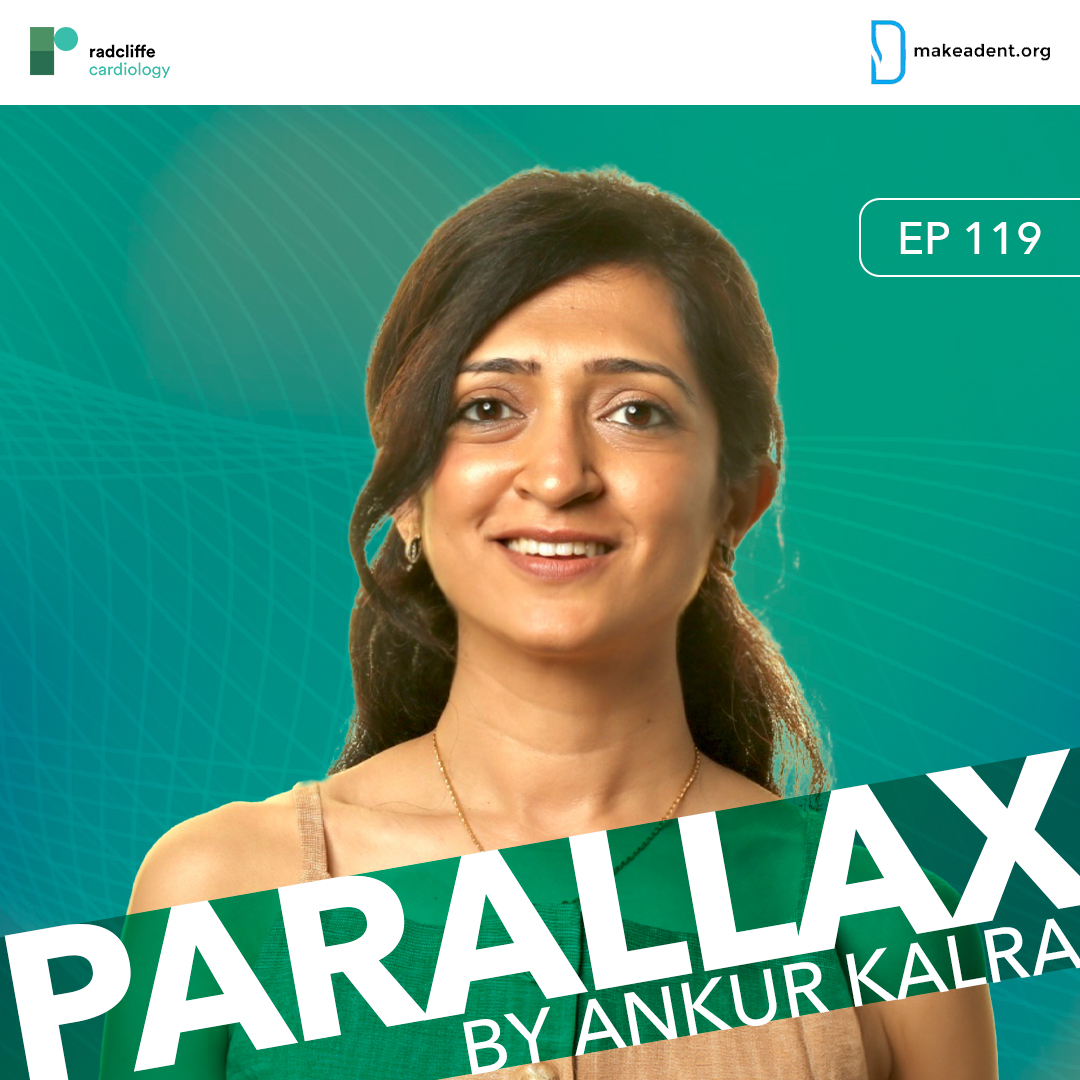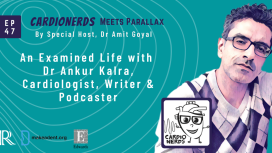
In this episode of Parallax, Dr Ankur Kalra reunites with Dr Purvi Parwani for a deep dive into the groundbreaking data unveiled at ESC Congress 2024.
Dr Parwani, Director of the Women's Cardiovascular Disease Clinic and a leading expert in her field, serves as Associate Professor of Medicine and Director of the Echocardiography Laboratory for Advanced Cardiovascular Imaging at Loma Linda University Health.
Dr Parwani offers a comprehensive analysis of the most impactful trials presented at the congress. She delves beyond the headlines, exploring the practical implications these findings hold for the future of patient care. Dr Kalra and Dr Parwani engage in a stimulating discussion, comparing the new data to prior research and exploring how these insights can be translated into real-world improvements for our patients.
Key Trials included:
- MATTERHORN: Transcatheter versus surgical mitral valve repair in patients with heart failure and secondary mitral regurgitation (NCT02371512)
- RESHAPE-HF2: Percutaneous repair of moderate-to-severe or severe functional mitral regurgitation in patients with symptomatic heart failure (NCT02444338)
- TRI FR: Multicentric randomised evaluation of the transcatheter edge-to-edge repair in the treatment of severe isolated secondary tricuspid regurgitation (NCT04646811)
- RHEIA: Transcatheter versus surgical aortic valve replacement in women with severe aortic stenosis (NCT04160130)
- SENIOR RITA: Older patients with non-ST segment elevation myocardial infarction randomised interventional treatment trial (NCT03052036)


Chest pain is one of the most common reasons for an emergency room visit in the US, with almost 6 million ER visits annually, yet there is no consensus on how to compare the results from various hscTn assays. Tune in to hear Santiago outline the advantages and limitations of using hscTn as a standard biomarket to evaluate patients with suspected ACS in the ER.
Hosted by @AnkurKalraMD. Produced by @RadcliffeCardiology.


In this candid and spiritual conversation Amit and Ankur take a journey through former episodes of Parallax and Ankur’s writings to explore what it takes to strive for a deeper knowledge of ourselves; or, as Ankur puts it, dharma, the inherent order of reality.

Parallax’s guest this week is Dr Eric David Adler, Medical director of heart transplant and mechanical circulatory support at UC San Diego Health.

How did Dr Gragossian receive her diagnosis? How does she feel about her new reality? What drives her? What is her message to our listeners?

Just after 9/11, Heval, the 18-year-old Syrian Kurdish refugee found a job as a dishwasher. At this point, he was the sole provider of his family. The pressure that comes from being poor did not leave him for many years. Today, he is firm believer in giving back to underserved communities by spreading awareness within the medical community. As he says, well-meaning people of privilege are sometimes afraid to act. What we need is more people to bridge the gap and find ways to help each other.

What drives Dr Nishtha Sodhi? What were the formative moments of Dr Sodhi’s career? What are the new frontiers of cardiology?







